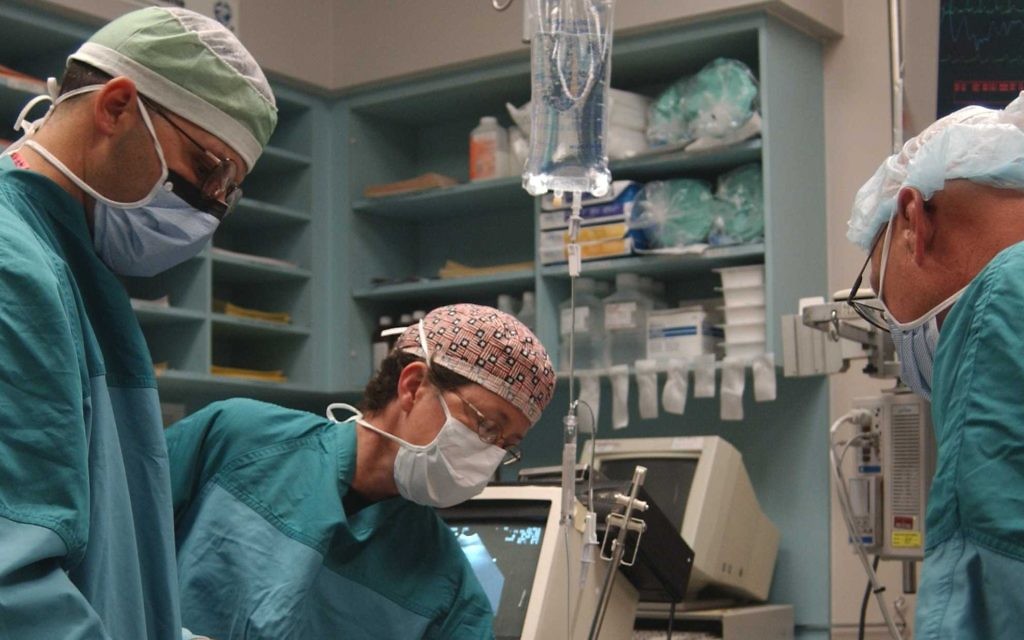My Two Shekels! This week… the Junior Doctors’ contract dispute
This week's reflects on the Junior Doctors strike
“The children of the house help their parents. Fathers, mothers, children build barricades. And groups of workers walk about in the streets.”
This song, Barikadn (Barricades), was composed by Shmerke Kaczerginski, a Yiddish writer and radical activist, describing a strike in Lodz in the 1920s.
Barikadn is not the only song of its kind in the Yiddish repertoire – beginning in the late 19th century, many Eastern European Jews became involved in unions.
Get The Jewish News Daily Edition by email and never miss our top stories Free Sign Up
And where unions arose, strike action followed. Within the trade union movement, the strike was perhaps the only vehicle for workers to wrest some power in an unequal situation, gaining better wages, safer working conditions and the novel idea of days off.
Many of us with family from Eastern Europe heard the stories of our ancestors’ struggles for workers’ rights.
And, it is important to say, many Jews, including a good number of rabbis, belong today to unions.
So there is a history of Jewish support for unions and for strike action, which stems from the experience of being working-class people in rather powerless situations.
But a tailor on strike is different from a doctor, and there have been Halachic rulings on doctors and strikes in particular, arising out of the 1983 doctors’ dispute in Israel.
Because there is an Halachic obligation to save lives, and striking risks breaking the command to heal – not to stand idly by the blood of one’s neighbour, and pikuach nefesh, the saving of lives – the rabbis sent messages to the striking doctors telling them that they could not strike.
There was some support given for the idea of a limited strike that would lead to arbitration, as long as it did not interrupt services for those who might be endangered by lack of available doctors (and the doctors stated that care would be provided when needed), but that, as soon as there was binding arbitration, they needed to pursue their ends in that forum.
The right to strike for doctors was curtailed – the rights of other groups to strike is generally recognised.
However, both parties had to agree to arbitration and if the employer refused the request, some strike action might be permitted.
The problematic part of the piece is how to compel the government to meet their demands, or to agree to binding arbitration.
If the government refuses, what can doctors do to assert some control?
Perhaps as long as urgent medical situations are covered, there must be the right for all workers to strike.
Better would be that, in all such situations, the law would insist on independent arbiters.
Ultimately, our doctors need to be content, well recompensed and have the same right to working hours conducive to doing a difficult job safely. And that might require strikes.
• Barbara Borts is a member of Darlington Hebrew Congregation

Thank you for helping to make Jewish News the leading source of news and opinion for the UK Jewish community. Today we're asking for your invaluable help to continue putting our community first in everything we do.
For as little as £5 a month you can help sustain the vital work we do in celebrating and standing up for Jewish life in Britain.
Jewish News holds our community together and keeps us connected. Like a synagogue, it’s where people turn to feel part of something bigger. It also proudly shows the rest of Britain the vibrancy and rich culture of modern Jewish life.
You can make a quick and easy one-off or monthly contribution of £5, £10, £20 or any other sum you’re comfortable with.
100% of your donation will help us continue celebrating our community, in all its dynamic diversity...
Engaging
Being a community platform means so much more than producing a newspaper and website. One of our proudest roles is media partnering with our invaluable charities to amplify the outstanding work they do to help us all.
Celebrating
There’s no shortage of oys in the world but Jewish News takes every opportunity to celebrate the joys too, through projects like Night of Heroes, 40 Under 40 and other compelling countdowns that make the community kvell with pride.
Pioneering
In the first collaboration between media outlets from different faiths, Jewish News worked with British Muslim TV and Church Times to produce a list of young activists leading the way on interfaith understanding.
Campaigning
Royal Mail issued a stamp honouring Holocaust hero Sir Nicholas Winton after a Jewish News campaign attracted more than 100,000 backers. Jewish Newsalso produces special editions of the paper highlighting pressing issues including mental health and Holocaust remembrance.
Easy access
In an age when news is readily accessible, Jewish News provides high-quality content free online and offline, removing any financial barriers to connecting people.
Voice of our community to wider society
The Jewish News team regularly appears on TV, radio and on the pages of the national press to comment on stories about the Jewish community. Easy access to the paper on the streets of London also means Jewish News provides an invaluable window into the community for the country at large.
We hope you agree all this is worth preserving.
-
By Laurent Vaughan - Senior Associate (Bishop & Sewell Solicitors)
-
By Laurent Vaughan - Senior Associate (Bishop & Sewell Solicitors)
-
By Laurent Vaughan - Senior Associate (Bishop & Sewell Solicitors)
-
By Laurent Vaughan - Senior Associate (Bishop & Sewell Solicitors)






















